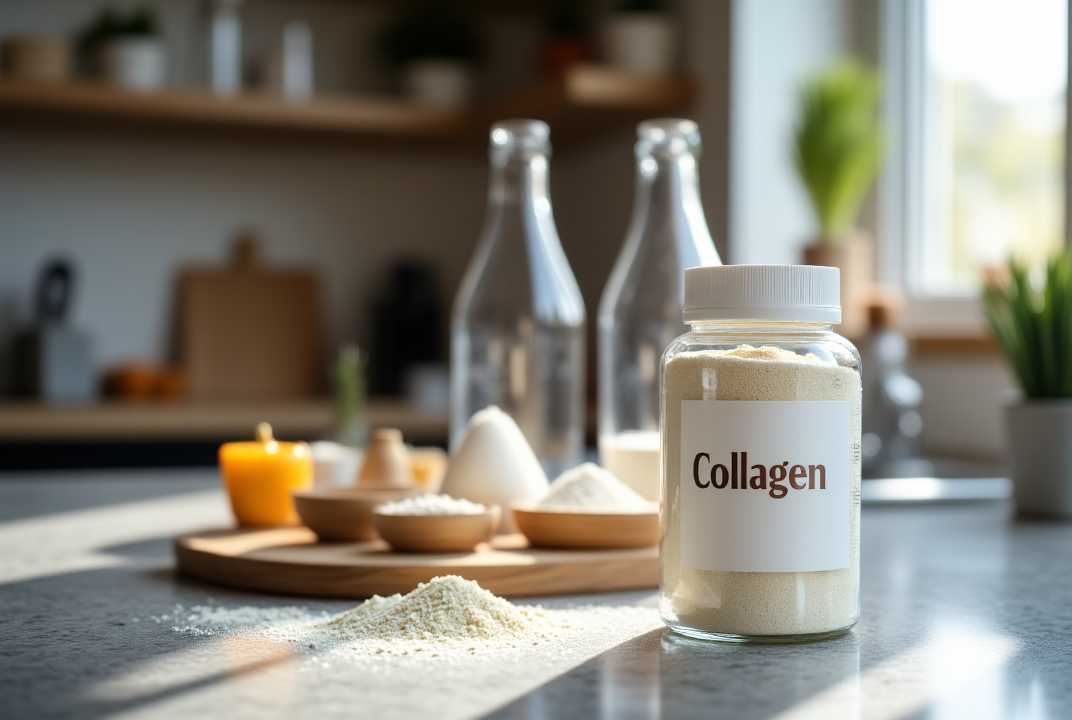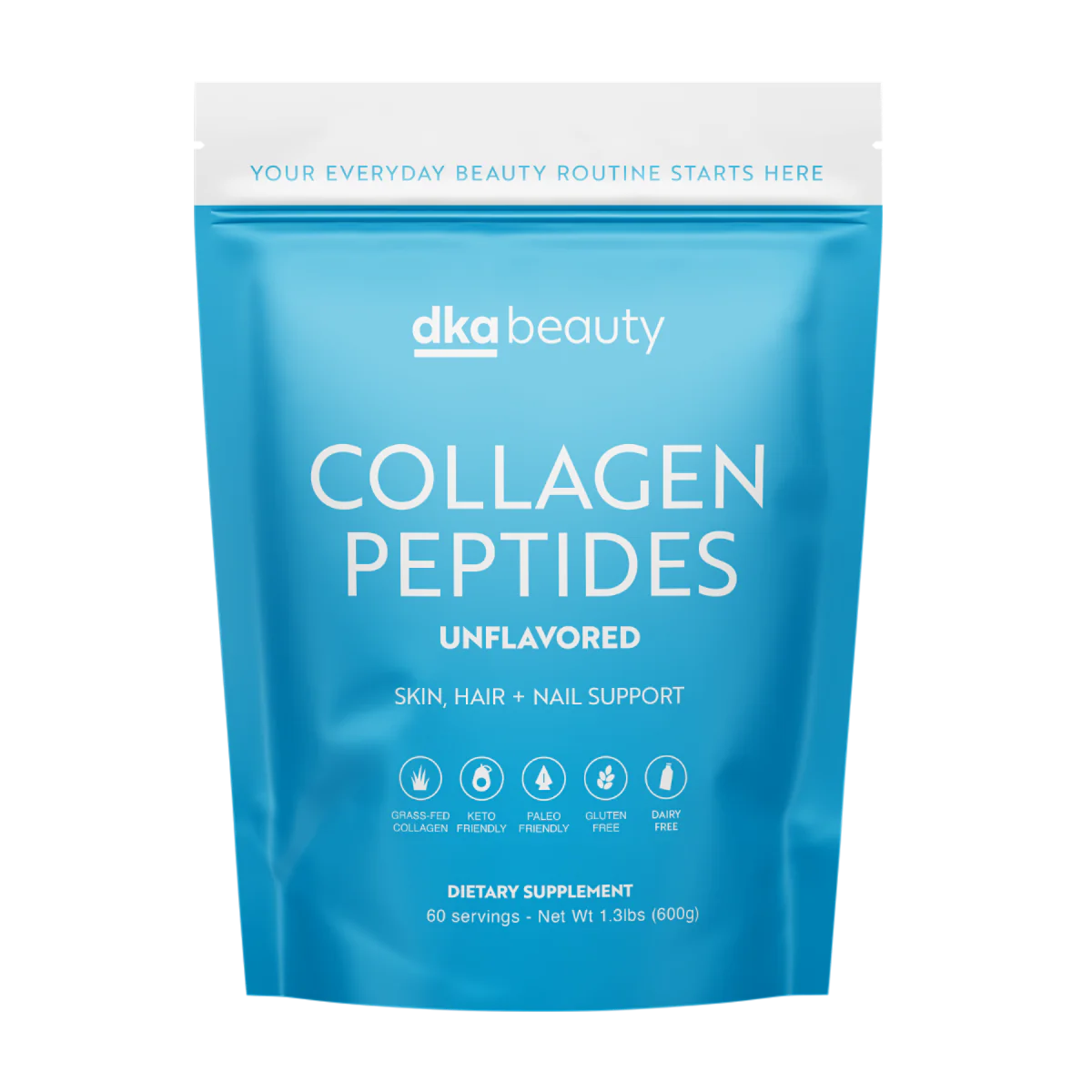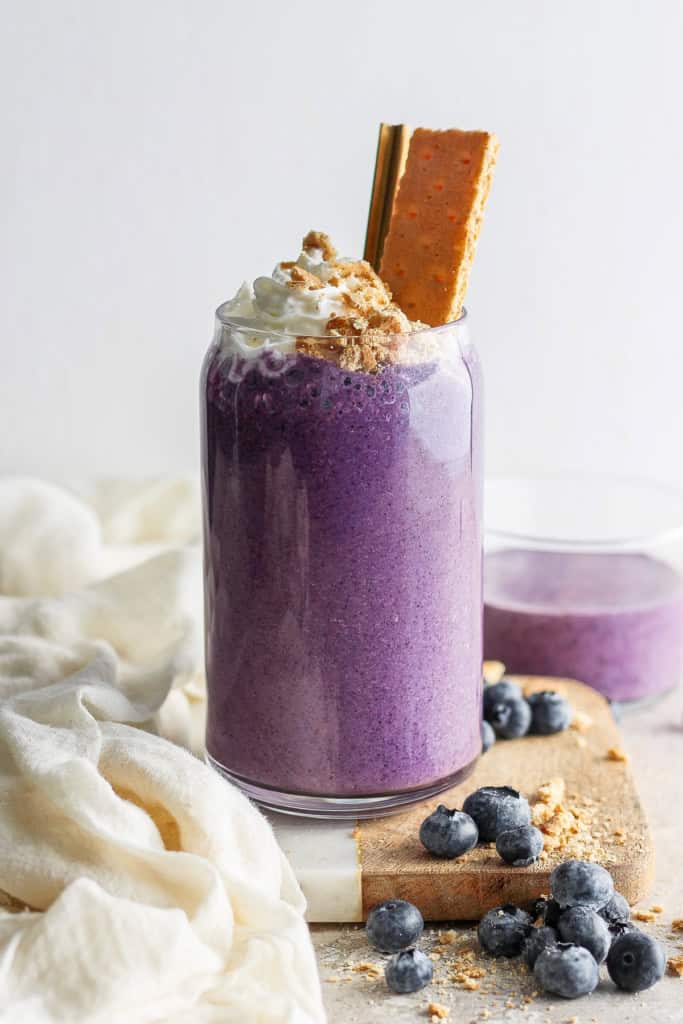
From beauty influencers to fitness enthusiasts, everyone seems to be raving about collagen supplements as the secret to glowing skin and resilient joints. But amidst the hype and glossy marketing, it’s crucial to ask: are these benefits backed by credible evidence, or are we falling for myths? Join us as we dive into the facts, debunk common misconceptions, and uncover what you really need to know about collagen supplementation.
What Is Collagen?
Collagen is the most abundant protein in the human body, serving as a fundamental building block for skin, bones, muscles, tendons, and ligaments. It provides structure, strength, and elasticity, helping tissues withstand stretching and maintain their integrity. As we age, our natural collagen production declines, leading to common signs of aging such as wrinkles, joint discomfort, and reduced skin firmness. Because of its vital role in maintaining youthful skin and healthy joints, collagen has become a popular ingredient in supplements and skincare products aimed at supporting overall wellness and combating the effects of aging.
What Exactly Are Collagen Supplements?
Collagen supplements are dietary products designed to boost the body’s collagen levels, typically available in the form of powders, capsules, or drinks. They are made by breaking down animal-derived collagen—most often from bovine (cow), marine (fish), or porcine (pig) sources—into smaller, easily absorbed peptides. These supplements are marketed to support skin elasticity, reduce wrinkles, strengthen hair and nails, and promote joint and bone health. While they offer a convenient way to increase collagen intake, their effectiveness depends on factors like absorption, dosage, and individual health needs.
What Types Of Collagen Are There?
Type I Collagen
Type I collagen is the most abundant form in the human body, making up about 90% of your body’s collagen. It is primarily found in skin, bones, tendons, and connective tissues, providing structure and strength. This type is especially valued for its role in maintaining youthful, firm skin and supporting bone health.
Type II Collagen
Type II collagen is mainly found in cartilage, which cushions joints and supports flexibility and movement. It plays a crucial role in joint health and is often the primary type used in supplements aimed at reducing joint pain or supporting mobility, especially for those with arthritis or active lifestyles.
Type III Collagen
Type III collagen is commonly found alongside Type I in skin, muscles, and blood vessels. It helps maintain the structure of organs and tissues, contributing to skin elasticity and the integrity of internal organs. This type is particularly important during periods of growth and healing.
Other Types
While Types I, II, and III are the most prevalent and studied, there are at least 16 different types of collagen in the body. Types IV and V, for example, are found in cell membranes and the surfaces of organs, playing specialized roles in filtration and tissue formation. However, most collagen supplements focus on Types I, II, and III due to their significant impact on skin, joint, and connective tissue health.
Do Collagen Supplements Work?
Collagen supplements, such as Dr. Kellyann’s Unflavored Collagen Peptides, are formulated to support the body’s natural collagen levels, which decline with age and can lead to joint discomfort, skin aging, and reduced tissue elasticity. These supplements are made from hydrolyzed collagen peptides—typically sourced from grass-fed bovine protein—making them easy to digest and absorb. Research and user experiences suggest that regular use may help improve joint comfort, promote skin elasticity, support hair and nail strength, and even contribute to gut health. While individual results can vary, high-quality collagen supplements offer a convenient and versatile way to boost daily protein intake and support overall wellness, especially when combined with a balanced diet and healthy lifestyle.

Collagen Supplements Facts vs Myths
Collagen Supplements Facts
- Collagen supplements can help improve skin elasticity and hydration, reducing the appearance of fine lines and wrinkles.
- Scientific studies suggest collagen peptides may support joint health and reduce joint pain, especially in aging adults and athletes.
- Collagen is a protein made up of amino acids that are essential for maintaining healthy skin, hair, nails, and connective tissues.
- Hydrolyzed collagen, commonly used in supplements, is broken down for better absorption and utilization by the body.
- High-quality collagen supplements are typically free from artificial additives and can fit into various diets, including keto and paleo.
Collagen Supplements Myths
- Collagen supplements provide instant results; in reality, noticeable benefits often require consistent use over several weeks or months.
- All collagen supplements are the same; in fact, quality, source, and type of collagen can significantly impact effectiveness.
- Taking collagen alone will completely reverse aging or joint issues, but it works best as part of a holistic wellness routine.
- Collagen supplements can replace a healthy diet; they are meant to complement, not substitute, balanced nutrition.
- Plant-based sources can provide true collagen; however, real collagen is only found in animal-derived products, though some plant-based supplements may support the body’s own collagen production.
Are There Fitness Or Muscle Recovery Benefits?
Collagen supplements are increasingly popular among fitness enthusiasts and athletes for their potential to support an active lifestyle. Many people incorporate collagen into their routines with the goal of maintaining healthy joints, tendons, and muscles, which are all essential for exercise performance and recovery. Collagen is a natural protein found in connective tissues, and supplementing with it may help provide the building blocks the body uses during periods of physical stress or after workouts. While individual experiences vary, some users report feeling more resilient and comfortable during their fitness routines when collagen is part of their daily regimen.
Can I Take Collagen Supplements Daily?
Yes, collagen supplements are generally designed for daily use and can be easily incorporated into your routine by mixing them into drinks, smoothies, or meals. Many people choose to take collagen every day to help support their skin, joints, and overall wellness, as consistent intake may offer the best results over time. It’s important to follow the recommended serving size on the product label and consult with a healthcare professional if you have any underlying health conditions or concerns. Daily use is considered safe for most healthy adults and can be a convenient way to maintain your body’s natural collagen levels as part of a balanced lifestyle.
How Can You Maximize Collagen Supplement Results?
|
Strategy |
Why It Matters |
How to Implement |
|
Choose High-Quality Collagen |
Purity and sourcing impact absorption and effectiveness |
Opt for grass-fed, pasture-raised, or wild-caught collagen peptides |
|
Take Consistently |
Regular intake supports steady collagen levels |
Add to daily routine—mix in coffee, smoothies, or recipes |
|
Pair with Vitamin C |
Vitamin C is essential for collagen synthesis in the body |
Eat citrus fruits, berries, or take a vitamin C supplement |
|
Maintain a Balanced Diet |
Nutrients like protein, zinc, and copper also support collagen production |
Include lean meats, nuts, seeds, and leafy greens in your meals |
|
Stay Hydrated |
Hydration helps maintain skin elasticity and supports overall health |
Drink plenty of water throughout the day |
|
Avoid Excess Sugar & Smoking |
Sugar and smoking can break down collagen and hinder its production |
Limit sugary foods and avoid tobacco products |
|
Support Gut Health |
A healthy gut improves nutrient absorption, including collagen peptides |
Eat fiber-rich foods, fermented foods, and consider a probiotic |
|
Get Enough Sleep |
Sleep is crucial for tissue repair and collagen regeneration |
Aim for 7–9 hours of quality sleep each night |
|
Protect Skin from UV Damage |
UV rays accelerate collagen breakdown in the skin |
Use sunscreen and wear protective clothing outdoors |
Common Collagen Supplement Mistakes To Avoid
- Skipping daily doses or using collagen inconsistently, which can limit potential benefits and slow progress.
- Choosing low-quality or poorly sourced collagen supplements that may contain fillers or lack effective absorption.
- Ignoring the importance of a balanced diet and relying solely on collagen supplements for skin or joint health.
- Forgetting to pair collagen with vitamin C-rich foods, which are essential for optimal collagen synthesis in the body.
- Overlooking the product label and taking more or less than the recommended serving size, which can impact results.

Conclusion
Collagen supplements have become a popular addition to wellness routines for those seeking to support healthy skin, joints, and overall vitality. While they are not a miracle solution, consistent use of high-quality collagen—paired with a balanced diet and healthy lifestyle—may help maintain the body’s natural collagen levels as we age. Understanding the facts, avoiding common mistakes, and choosing reputable products can maximize your results and help you make informed decisions. Ultimately, collagen supplements can be a valuable tool for those looking to invest in their long-term health and well-being.
Final Thoughts
Wondering how to maximize the benefits of your collagen supplement for healthier skin and joints? Explore Dr. Kellyann’s best sellers, where you’ll find a range of nourishing options like chicken, beef, and french onion bone broths to support your gut and skin. For a daily anti-aging boost, try Collagen Peptides, or treat yourself to chocolate and vanilla shakes from Dr. Kellyann’s collection. Discover all the delicious ways to enhance your wellness at Dr. Kellyann’s.
Sources
- https://pmc.ncbi.nlm.nih.gov/articles/PMC1606623/
- https://lieflabs.com/the-differences-between-powders-capsules-tablets/
- https://www.hollandandbarrett.com/the-health-hub/sports-nutrition/is-this-the-new-protein-powder-is-collagen-essential-for-recovery-after-sport/





